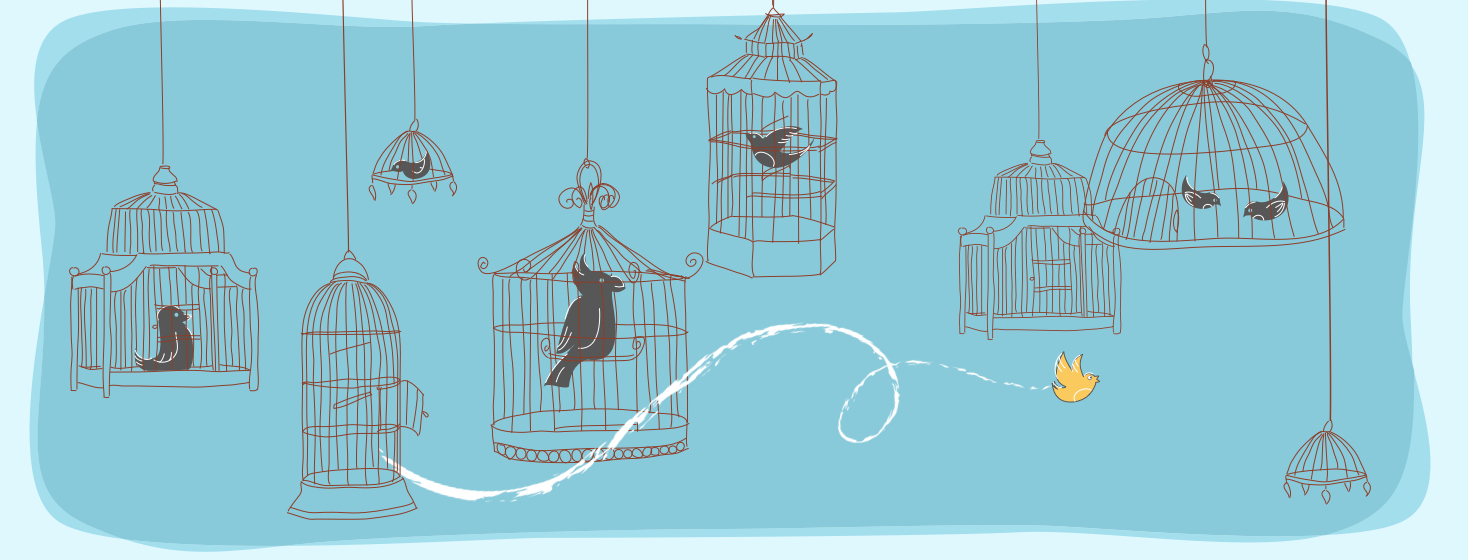Trap and Release the Guilt of MS
Living with a chronic disease can stir up lots of feelings. Often there is fear, anger, hope, acceptance, uncertainty, and more. One emotion that can creep in is guilt.
Guilt. Guilt. So much guilt.
People might feel guilty for not being able to do the things they once did. People might feel guilty and worry that they place burdens on others. People might even feel guilty for doing well when others aren’t.
Guilt from canceled plans
It’s easy to feel guilty when MS interferes with your ability to attend events you planned ages ago. It could be that lunch out with the “girls” or a family gathering to celebrate your nephew’s graduation. Whatever the event the inevitable — “I’m sorry, I can’t come” — cancellation is never easy.
MS is unpredictable
Multiple sclerosis is unpredictable. Too often it becomes like a young child full of temper tantrums that you need to isolate to calm down. You never know when it’s going to act out, but you need to be flexible enough to manage the situation. And do so without feeling guilty about it.
Blame. Blame. There is no blame.
Another type of guilt people might struggle with is the guilt of thinking that you did something to cause the disease. This form of guilt is a tough one. We know that MS is not a disease that happens simply because you smoked too much, drank too much, or partied too much. There isn’t any sin that you committed or that your parents committed that resulted in your development of MS.
No one knows what exactly causes MS
The exact cause(s) of MS are unknown. Researchers are exploring the possible combination of factors that may trigger MS.1 Areas of ongoing research focus on the body’s immune system, genetics, infectious agents (such as viruses), and epidemiology (the study of disease patterns in groups of people).
Don't blame yourself
Do not blame yourself for developing MS. If you were obese as a child, do not blame yourself. If you ran track or didn’t run track, do not blame yourself. If you prayed every day or have never prayed, do not blame yourself.
Faith is very important; an essential part of life. I have relatives who believe in faith healing. However, the church I attended as a child did not promote this practice. I’ve never personally received comments to suggest that the reason I have multiple chronic illnesses which persist is due to a lack of faith. Unfortunately, I have heard that message being shared with other family members. On this journey living with MS, I never want people to take on the guilt associated with the belief that lack of faith was the cause of their suffering.
Faith. Faith. Choose faith in yourself.
The faith that I’m interested in promoting is faith you develop in yourself to do the best you can with any given situation. Faith you have that you are strong enough to tell people how they can help you. Faith you demonstrate to yourself every time you take a moment to affirm that “you can do it.” Faith you have that although today may be a crappy day tomorrow starts out fresh with new opportunities to love yourself and be your strongest cheerleader. Faith you have the capacity to show yourself unconditional empathy and understanding.
Kindness. Empathy. You are in control.
I like to envision that faith in myself is more powerful than guilt. That helps me to claim power over what I can truly influence and to release the oppression of guilt for what I can’t influence at that moment.
I’m not perfect, and my emotions often race ahead of conscious thoughts, like a dog running around on a long leash that gets tangled in the bushes or rushes into traffic. But when my thoughts are flooded with kindness and empathy for myself, I am able to rein in the leash of guilt. I take control.
Refusing to burden myself with guilt over what I cannot control
I may not be able to hike 5 miles with my husband, but I can’t burden myself with the guilt of that. We are creative beings and can find other common interests, such as cycling. And I can feel at peace if he chooses to go hiking with friends and I stay home.
I do not need to nurture my inner guilt nor be embarrassed by it. I’d rather shower my guilt with personal kindness and understanding to calm it down. Or view it as a raccoon that snuck into the attic that needs to be humanely trapped and released into the wild, hopefully never to be seen again.
How do you manage guilt?
Guilt and I will cross paths many times in my life; I know that. But that doesn’t mean I need to allow guilt to take up residence as a guest in my home or in my mind.
Does guilt play a part in your life with MS? Is it ever-present or an occasional drop-by guest? How do you manage guilt when it intrudes?
Be well and nurture yourself my friends,
Lisa
Read my other articles on MultipleSclerosis.net

Join the conversation